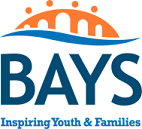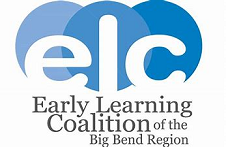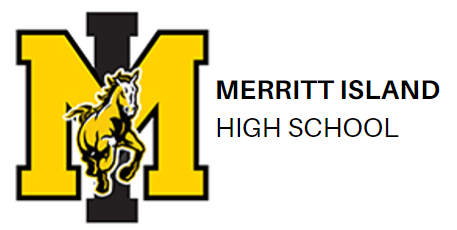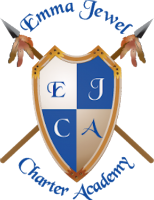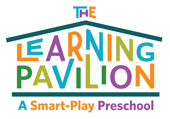
Florida State University now offers an online Cognitive Behavioral Resiliency Professional Certification and Curriculum for Early Childhood. Rebound & Recovery provides a comprehensive foundation of knowledge on what Cognitive Behavioral Therapy is, its effects on learning in the classroom and educational outcomes for students. Participants of the certification gain insight into the concept of the connection between a child’s emotion and thoughts and that of their behavior in the classroom which impact the child’s social and emotional growth and their ability to learn.
This course will prepare educators and other individuals working with children to provide ten comprehensive lessons to teach students about their emotions, thoughts, and actions and how to acknowledge and navigate them.
This course gives individuals working with children the tools to understand their emotions and how they impact their thoughts and actions, their learning, trauma informed care, and build proficiencies in classroom management of emotions and behaviors. Through the certification’s curriculum, participants also learn how to provide student-centered cognitive behavioral supports in the classroom and home.
This self-paced curriculum includes 15 hours of course content and 15 modules of research-based readings, case scenarios, multi-media materials, assignments, and quizzes.
For information on DEL Stipends, access PDF file linked below
The certification is designed to benefit to broad range of people engaged in early child learning including the following:
- Pre-K Teachers & Childcare Providers
- Elementary Educators
- Teaching Assistants and Interns
- Front-Line Human Service Staff Working in Classrooms
- School District Personnel
- Early Education Administrators
- Social Services Providers
- Child Welfare Staff
- Guardians ad Litem
- Church Educators
- Families and Children
Advisory Review Board
The research team at the Center for the Study and Promotion of Communities, Families and Children appreciates the expertise of our Advisory Review Board Members:
- Dr. Chelsea Morris, University of New Mexico Assistant Professor of Early Childhood
- Dr. Susan Brasher, Ph.D., CPNP-PC, Emory University Assistant Professor
- Dr. James Clark, Ph.D., LCSW, Florida State University Professor & Dean College of Social Work
- Dr. Mimi Graham Ph.D., Florida State University Director Center for Prevention & Early Intervention Policy
- Dr. Elena Reyes Ph.D., Florida State University Professor; Regional Director College of Medicine Southwest Florida
- Jackie Romillo, LCSW. Citrus Health Network Early Childhood Program Administrator and Board Chair Florida Association for Infant Mental Health
- Dr. Bulotsky Shearer Ph.D., University of Miami Associate Professor
- Kim Sineath, The Learning Pavilion Senior Director
- Venita Treadwell, Capital Area Community Action Agency Early Childhood Development Program Manager
This Professional Certification was created by the Center for the Study and Promotions of Communities, Families, and Children
Ellen Piekalkiewicz, Director
Tai Cole, MSW, M. Div., MACE, Assistant Director of Rebound & Recovery, Curriculum Developer
Savannah Collier, MSW, Clinical Program Manager
Lara Klopp, Graphic Design Specialist
Credentials
The Florida Association for the Education of Young Children (FLAEYC) is proud to offer Continuing Education Units (CEUs) that are accepted under Florida Administrative Code (Chapter 65C-22) by several state agencies including the Florida Office of Early Learning and the Florida Department of Children and Families for credential renewals and fulfilling annual training requirements. 1.0 CEU is equivalent to 10 hours of educational instruction. Participants may earn FLAEYC CEUs through attending and successfully completing this specific early childhood professional certification offered by Florida State University. FSU Center for the Study & Promotion of Communities, Families, and Children (FSU CFC) has partnered with FLAEYC and has been approved for the issuance of CEUs for their early childhood Rebound & Recovery Professional Certification totaling 1.5 CEUs. Those registering for CEUs will be required to complete a learning gains survey and pay $28 to receive their CEU certificate. Emailed CEU certificates are received approximately 1 – 2 weeks following CEU registration.
Upon successful completion of the course, students are issued a downloadable Professional Certification. Additionally, various professions receive Continuing Education Units or In-Service Training hours. Participants must contact their school district or accreditation board to determine credit awarded.
About Our Program
1. Cost
How much does the training cost?
The training is $450 per person.
Is the registration fee different for non-Florida residents?
No. Participants are charged the same course fee: $450 for an individual and $400 per person for an organization registering 5 or more) regardless of where they reside.
Do you offer discounts to non-profits?
The vast majority of our participants come from non-profit organizations. As such, we did everything in our power to keep the cost of the training as low as possible. So, while we do not offer discounts to non-profits specifically, we do offer discounts to the following populations:
- Active and inactive U.S. Military
- FSU Alumni
- FSU Students, Faculty, & Staff
How do I obtain the discount?
You need a promo code that you MUST enter during you registration process. This cannot be applied retroactively. To obtain the promo code you must supply the following information for each population (email to ccarballo@fsu.edu):
- Active and inactive U.S. Military
- Send an email from your .mil account, OR
- Scan and email your military orders, OR
- Scan and email you military ID
- FSU Alumni
- Full name as it was when you attended FSU, and
- Date of Birth, and
- Graduation Year
- FSU Students, Faculty, & Staff
- Full name as is found in the Faculty/Staff database
Do you offer group discounts?
Associations, agencies, and organizations who are registering 5 or more participants receive a special rate of $400 per participant.
Can I use my State Tuition Waiver?
State Employee Tuition Waivers are restricted to credit courses. This course is non-credit, professional development and therefore does not apply for the tuition waiver.
2. Course Format
How does the online course work?
- The program is self-paced and fully online. Participants have 24/7 access to the course materials so they can work around their busy schedules. Also, participants have access to the course for one year from enrollment date.
- Participants must work through each chapter module completely before the chapter quiz is released. The quiz can be retaken an unlimited number of times.
- Upon successful completion of the last chapter (Chapter 15) the Feedback Survey will be released. Participants must complete the Feedback Survey in order for the Professional Certification to be released and downloaded.
How long does it take to complete the program?
The 15 modules take an estimate of 10 hours to complete.
Must the course be taken in a specific order?
Yes. Each module in the course must be completed before moving to the next module.
Is there a time-frame in which I need to complete the training?
After you register, the training will be open to you for one year (calendar year). Even if you complete the course in a short period of time, the course materials will remain open to you for the entire year.
3. Registration
Who can register for this training?
The training non-credit, professional development and is therefore open to the public. Participants do not need to apply to the University, rather they simply have to register and submit their payment.
Who should register for this training?
This course enables educators and other individuals working with young children to develop the knowledge and skills they need to understand Cognitive Behavioral skills and be able to teach the ten courses of Rebound & Recovery. It is specifically designed for a multidisciplinary audience, with content that will inform and advance the knowledge and skills of professionals in many fields.
Do I need to apply to the program?
No, there is no application process to participate in this program. This is a non-credit professional development/continuing education opportunity that is open to the public.
Are there educational requirements or pre-requisites to participate in this training?
There are no special degree requirements to participate in this training.
How do I register for this training?
- Visit the program webpage, https://learningforlife.fsu.edu/professional-certification-rebound-and-recovery/
- Click the Register Now button found in the price box in the right column.
- Fill out the registration form and submit your payment via the secure FSU payment portal.
PLEASE NOTE: Access to this course is on another website. Your login information and the link to the course will be sent to you 1-2 business days after your payment is confirmed. If you submit your payment on Friday or on the weekend, your login information will be sent to you that following Monday.
4. Where do I Take the Program and When Does it Start?
When are the courses offered?
Registration for the course is rolling and the curriculum is self-paced and fully online. This means participants may begin at any time – after registration and payment has been received.
PLEASE NOTE: Access to this course is on another website. Your login information and the link to the course will be sent to you 1-2 business days after your payment is confirmed. If you submit your payment on Friday or on the weekend, your login information will be sent to you that following Monday.
Where do I take the training and when does it start?
The training portal is accessed at https://courses.learningforlife.fsu.edu. This is NOT the same place where participants registered. Participants will be able to access and start the training once payment has been submitted and processed and login credentials have been provided.
5. What credentials can I earn?
Upon successful completion of the course, students are issued a downloadable Certificate of Completion. Additionally, various professions receive Continuing Education Units or In-Service Training hours. Participants must contact their school district or accreditation board to determine credit awarded.
To obtain Discount Codes, please reach out to Catia Carballo using the contact form at the bottom of this webpage. Discount codes MUST be entered in the Promo Code field during the registration process and cannot be applied after the registration is submitted. Before submitting your registration, please verify that your total amount due reflects your discount.
We currently offer discounts to the following populations:
All active/inactive U.S. Military – 10% Must supply:
- Send an email from your .mil account, OR
- Scan and email your military orders, OR
- Scan and email you military ID
FSU Alumni – 10% Must supply:
- Full name as it was when you attended FSU, and
- Date of Birth, and
- Graduation Year
FSU Students – 10% Must supply:
- Full name and
- Date of Birth
FSU Faculty & Staff – 10% Must supply:
- Full name as is found in the Faculty/Staff database
FSU Alumni Association Members – 15% Must supply:
- Forward the confirmation email from FSU Alumni Association received upon joining, OR
- Screenshot of your FSU Alumni Association account page showing your name, Membership #, and current status, OR
- Email your membership # (please allow time for us to verify Membership status)
Group Discounts also Available
- Reach out to Catia Carballo using the contact form at the bottom of this webpage .
*Discounts are not cumulative. Only one discount can be used per student.
Minimum Hardware Requirements
A functional laptop or desktop computer, tablet or smartphone with a reliable high-speed Internet connection.
Minimum Skills Requirements
Basic computer literacy including the ability to connect to the Internet and navigate the web using URLs, Web search engines and links.
Minimum Time Requirements
The estimated time to complete this certification is 10 hours.
Completed by: Chelsea T. Morris, Ph.D. | June 24, 2021
Introduction
Young children who lack the ability to understand and regulate their emotions and behaviors are at risk for a host of negative outcomes, including a negative impact on school readiness, negative relationships with peers and adults, and academic failure. These children may develop chronic challenging behavior (e.g., aggression, disruption) or become at risk for future identification of an emotional or behavioral disorder. Further, discipline data suggests that young children who engage in negative or inappropriate behaviors are at risk for suspension or expulsion, resulting in a loss of valuable foundational opportunities for growth and learning.
Research has shown that receiving high quality early learning experiences that are enriched with opportunities to practice Cognitive Behavioral strategies and skills support young children’s engagement and learning as well as fosters positive interactions with teachers and peers. One of the keys to supporting these experiences is the development of and access to evidence-based preventative classroom-based interventions that aim to increase Cognitive Behavioral Resiliency, enhance positive teacher-child interactions, and ameliorate challenging behaviors. Early childhood and early elementary school classrooms are ideal contexts for teachers to implement Cognitive Behavioral skills learning programs, as it is a time in development when children’s skills are most malleable.
This report is meant to serve as an executive summary of Rebound & Recovery: Cognitive Behavioral Education and Intervention for Early Childhood, a fifteen-module certificate program offered by Florida State University’s Center for the Study and Promotion of Communities, Families, and Children (“CFC Center”). Florida State University’s Center for the Study and Promotion of Communities, Families, and Children (“CFC Center”). The course is meant to build their capacity for responding to challenging behavior, symptoms of trauma, and delays that young children might display in classrooms and home. The course focuses on processing emotions and coping with difficult feelings with a focus on engagement and communication skills.
Rebound & Recovery Curriculum
Rebound & Recovery: Cognitive Behavioral Education and Intervention for Early Childhood is inclusive of the Rebound & Recovery curriculum, ten lessons that provide direct instruction through scripted material, large- and small-group instruction, stories and activities. These lessons include: 1) How my emotions, thoughts, and actions are connected, 2) What are my thoughts and actions? 3) What is sadness? 4) What is anger? 5) What is worry? 6) What is calm? 7) What is happiness? 8) What are negative thoughts? 9) What is self-care? and 10) What are support systems? The ten lessons have associated resource pages and are organized by a lesson objective, the materials needed and what is needed to prepare for the lesson before class. Following these initial components, a step by step script is provided to help educators deliver the curriculum to students. Delivery guidance components and order of components varies based on the lesson and can include any of the following: a) whole group instruction (i.e. “Gathering Time”, including the CBT Focus); b) story time, including “I Wonder Time” where students respond to the story; c) singing; d) creation time, where students complete the week’s activity sheet, journaling, art/craft, or; and, e) closing (including the use specific strategies, and saying goodbye).
The use of Rebound & Recovery in the course demonstrates best practice. Best practices in early childhood recommend that interventions are guided by a developmental and contextual understanding of children’s behavior. In a dynamic model for understanding children’s social-emotional skills, behavior is best understood as a mismatch between the demands of the classroom’s social or learning environment and the child’s developmental capacities. In this way, Rebound & Recovery creates opportunities for learning that are presented across the day, in different activity settings. Also, rather than an intervention focused on a specific setting (e.g., hospital, health clinic, etc.), Rebound & Recovery is situated to provide intervention that occurs more broadly within the proximal settings where children spend most of their day (i.e. home and school) and implemented by those most proximal to the child (i.e., teacher and family).
Key Components
The Emotion Meter Check-In and Calming Techniques are used in every lesson, reinforcing skills and knowledge that children need to identify their emotions and respond to difficult situations appropriately. These daily tools help children express themselves. This component is valuable for young children because research shows that expression of emotions requires explicit training and support from adults. Further, this is one assessment tool included, which allows educators to determine the impact of the curriculum.
The caregiver components of this course are also worth a standalone mention. The “Caregiver Lesson Tool Kit” is available to support educators’ abilities to share the curriculum with families and caregivers. The tool kit includes guidance and scripts for introducing the CBT Triangle and various calming techniques in a workshop-like environment. In many early childhood programs, families and parents are valued as their child’s first teacher. Family engagement and family-school collaboration play a critical role in the effectiveness of interventions and the implementation of consistent practice opportunities across settings. Further, caregiver letters are available in English and Spanish, showing a beginning promise to non-English speaking families, a necessary component in today’s classrooms.
The adaptability of the included Rebound & Recovery lessons is another critical component that ensures educators can be successful in their use of the intervention and application of the knowledge and skills they gain from the course. Interventions that are focused within the school-based setting should be able to be adapted within classrooms, by educators. The Rebound & Recovery curriculum allows educators the opportunity to piecemeal components that are most relevant and responsive to the students they teach or implement the program in scripted steps.
Summary
This course meets a need for training that is beyond the scope of the traditional pre-service educator program and those who are working in early childhood without formal training. Its accessibility, video modules, and repetitive framework make the course easy to complete, while maintaining high expectations of the learner to master the learning objectives. The overall platform has a user-friendly navigation page and individual images/slides can be easily magnified on multiple device types (e.g. phone, computer). This course will hold value in the field of early childhood, particularly for educators that work with small groups of children and in classrooms. While the topic of Cognitive Behavioral Resiliency is not new, comprehensive curriculums with clear lessons are not plentiful. Thus, Rebound & Recovery, as embedded in the certification course, holds value as both innovative, novel, and necessary.
For questions, additional requests, or comments:
Dr. Chelsea T. Morris
ctmorris@unm.edu
For More Information:
Course Content Support:
Tai Cole, FSU CSW Center for the Study and Promotion of Communities, Families, and Children
tcole@fsu.edu
(850) 666-4752
Registration Assistance:
Catia Carballo, Center for Academic & Professional Development
Please use the contact form below.
For Questions about the FSU Professional Certification in Rebound & Recovery: Cognitive Behavioral Education & Intervention for Early Childhood
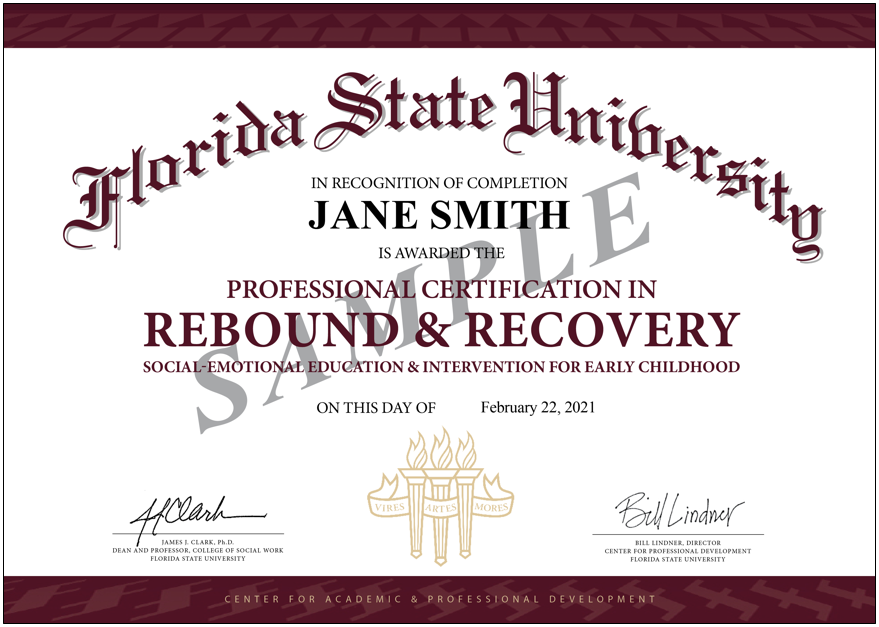
Price:
$450
$350
For more information, please use contact form at the bottom of the page.
Access to the course is not immediate upon payment and is in a different location than where you registered. Course access information and log in credentials will be emailed to you.



